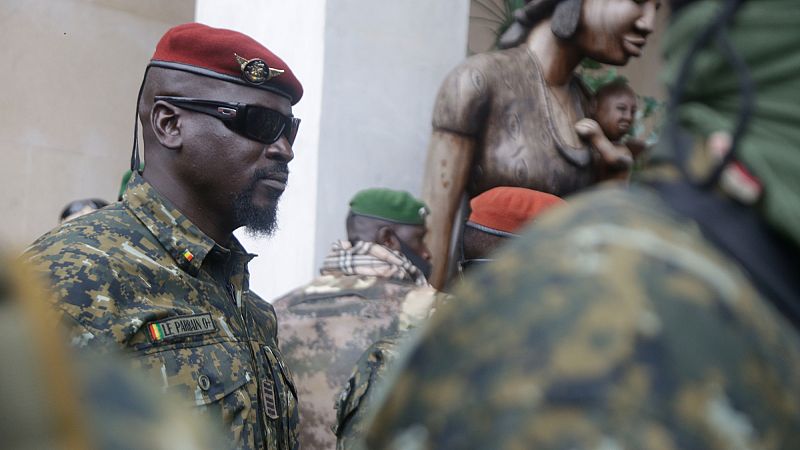Guineans vote overwhelmingly to allow military junta to run for presidency

Over 90% of Guineans voted 'yes' in a constitutional referendum that could allow the leader of the country's junta to run for president, according to provisional results announced Monday evening by the electoral body overseeing the vote count.
Guinea is one of a growing number of West African countries, including Mali, Niger and Burkina Faso, where the military has taken over. The referendum, which is a key step in the country's transition from military to civilian rule, is being closely monitored in the coup-battered region, with critics denouncing it as a power grab and opposition parties calling for a boycott.
Some say it is a way for Gen. Mamadi Doumbouya, who took power by force four years ago, to seek the presidency and legitimize his military rule. Doumbouya has not officially stated whether he will run in the upcoming election.
The turnout in over 80% of polling stations was 91.4%, Djenabou Toure, the head of the Directorate General of Elections, told reporters Monday evening. Out of these, 90.06% were "yes" votes and 9.04% were "no" votes. The referendum needed a turnout of at least 50% to pass.
The Directorate General of Elections is a newly created body that oversees the organization and the counting, and whose two heads were selected by Doumbouya. Elections are expected to follow later this year, but no precise date has been set.
Doumbouya ousted President Alpha Conde in 2021, saying he acted to prevent the country from slipping into chaos and chastising the previous government for broken promises. Despite rich natural resources, over half of Guinea's population of 15 million people are experiencing "unprecedented levels of poverty and food insecurity," according to the World Food Programme.
Doumbouya initially said he would not run for the presidency. However, the draft constitution permits junta members to run for office and extends the presidential mandate from 5 to 7 years, renewable twice. It also creates a Senate, where the president would appoint one-third of the members.
"Today, clearly the question is about the referendum vote," Gen. Amara Camara, secretary-general to the presidency, told The Associated Press on Sunday when asked whether Doumbouya would seek the top post. "When the time comes, we will talk about it."
Although Doumbouya has not spoken publicly about whether he would run in December's election, he remained the main figure of the referendum campaign. For weeks, Conakry buzzed with Quran readings, reggae concerts and prayers held in support of the military leader. Supporters wearing T-shirts and boubous — traditional West African flowing garments — printed with Doumbouya's face, gathered at neighborhood rallies. While the campaign was omnipresent, one thing was missing: the opposition.
Rights organizations accused the military regime of disappearing its opponents and silencing critical media voices. The military regime last year dissolved more than 50 political parties, claiming it was to "clean up the political chessboard." Weeks before the referendum, it suspended the three main opposition parties, rendering it impossible for them to organize rallies and communicate with the population.
Opposition leaders called on their supporters to boycott the referendum, calling it "a masquerade."
However, many Guineans, disillusioned with previous regimes, have been drawn to Doumbouya's vision of a prosperous and developed Guinea, one that would ultimately benefit all.
"We have seen many regimes here, but since the arrival of (Doumbouya), there has been a change," said Ben Daouda Sylla, a 30-year-old lawyer, citing new roads and young people being recruited into civic services. "He is doing everything possible to ensure that Guinea moves forward."
Today

